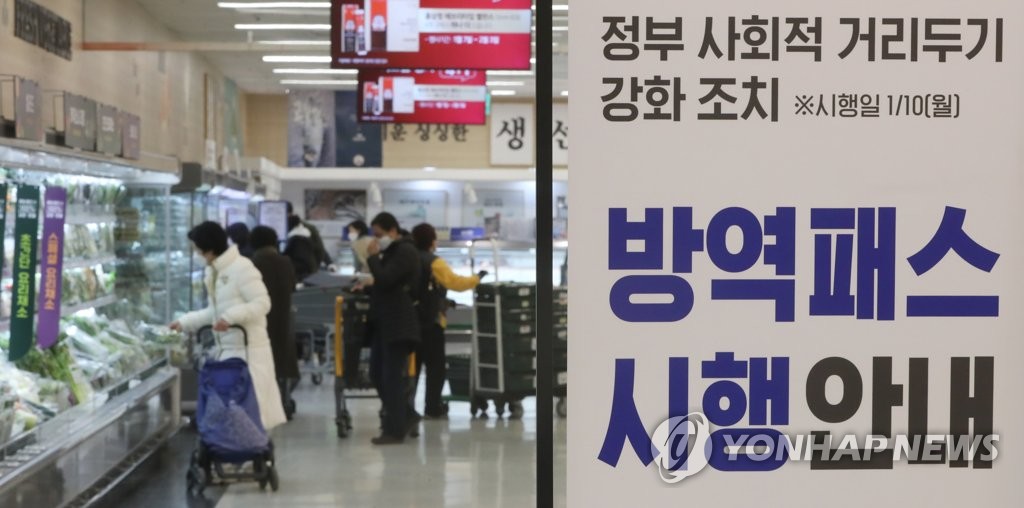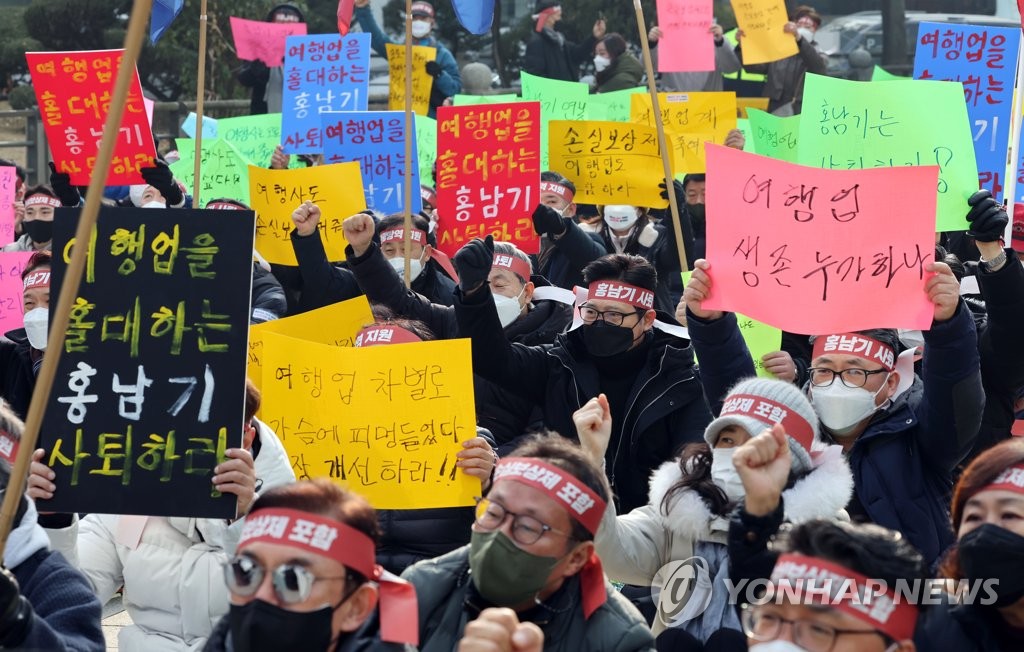- California Assembly OKs highest minimum wage in nation
- S. Korea unveils first graphic cigarette warnings
- US joins with South Korea, Japan in bid to deter North Korea
- LPGA golfer Chun In-gee finally back in action
- S. Korea won’t be top seed in final World Cup qualification round
- US men’s soccer misses 2nd straight Olympics
- US back on track in qualifying with 4-0 win over Guatemala
- High-intensity workout injuries spawn cottage industry
- CDC expands range of Zika mosquitoes into parts of Northeast
- Who knew? ‘The Walking Dead’ is helping families connect
Daily infections below 4,000 for 4th day amid tightened distancing rules
South Korea’s daily coronavirus cases stayed below 4,000 for the fourth straight day Monday amid tightened distancing rules to curb the spread of COVID-19.
The country added 3,007 new COVID-19 infections, including 2,768 local infections, raising the total caseload to 667,390, according to the Korea Disease Control and Prevention Agency (KDCA).
South Korea reported 34 more COVID-19 deaths, raising the death toll to 6,071, the KDCA added. The fatality rate was 0.91 percent.
The number of critically ill COVID-19 patients stood at 786, staying below 1,000 for the seventh consecutive day.
As of 6 p.m., the country added 2,488 new COVID-19 cases, up 147 from the same time the previous day, according to health authorities and city governments.
Daily cases are counted until midnight and announced the following morning.


This photo taken Jan. 10, 2022, shows a notice on the vaccine pass system, which took effect for large retail shops, such as department stores and discount store chains, on Monday at an Emart discount store outlet in Changwon, South Gyeongsang Province, (Yonhap)
In November, the government eased antivirus restrictions as part of efforts to return to normalcy in phases under the “living with COVID-19″ scheme.
Daily cases, however, soared to a record high of 7,848 on Dec. 15, prompting the government to reimpose a set of revised virus restrictions until Jan. 2 and later extend them until Jan. 16.
The restrictions include a four-person cap on private gatherings across the nation and a 9 p.m. business hour curfew on cafes and restaurants.
South Korea plans to bring in antiviral COVID-19 treatment pills this week, vowing to make sure they are used as swiftly as possible.
This month, health authorities introduced a six-month validity period for the COVID-19 vaccine pass that is required for people to enter restaurants, theaters, cram schools and other indoor multipurpose facilities.
Department stores, large discount store chains, large shopping malls, and large book stores have been added to the subjected facilities, with a one-week grace period allowed for them until Jan. 16.
Starting next Monday, businesses will be fined 1.5 million won (US$1,250) if they fail to abide by the vaccine pass system. The fine can go up to 3 million won for repeat violations. Businesses can also be ordered to permanently close on the fourth violation.
Individual violators can be fined 100,000 won each time they violate the vaccine pass system.
South Korea on Tuesday suspended the vaccine pass mandate for cram schools and other private education facilities following a court ruling that the system infringes on people’s right to learn.
Health authorities stressed that the vaccine pass is crucial to protecting unvaccinated patients and for the country’s medical response system.
The KDCA said 43.03 million people, or 83.9 percent of the country’s 52 million population, have been fully vaccinated, and 21 million, or 41 percent, have received booster shots.
The number of cases from overseas came to 239, raising the total caseload to 19,137.
Of the locally transmitted cases, Seoul reported 718, while 982 came from the surrounding Gyeonggi Province and 115 from Incheon, a port city west of the capital city.











